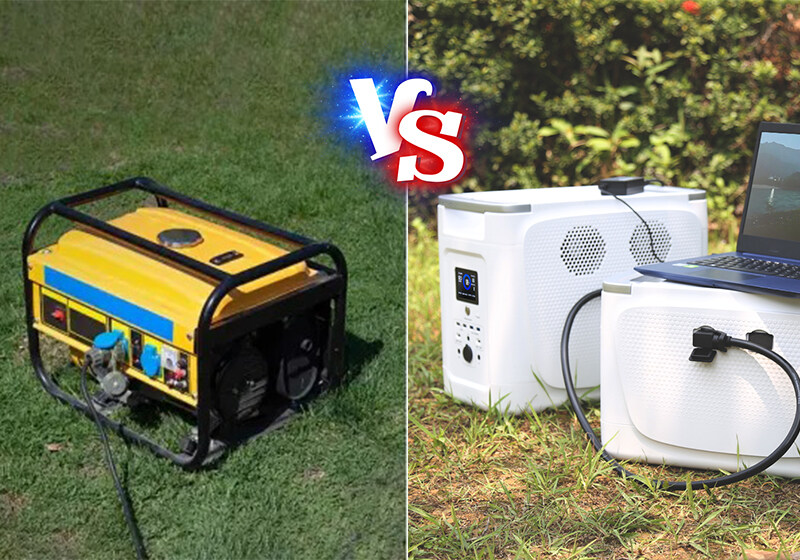

When it comes to ensuring uninterrupted power supply during emergencies or outdoor activities, two popular options are standby generators and portable power stations. Both these devices serve the same purpose, but they differ in various aspects. In this blog post, we will compare standby generators and portable power stations to help you make an informed decision on which option is best suited for your needs.
1. Power Output:
Standby generators are known for their high power output. They are capable of providing a continuous power supply to your entire house during a blackout. On the other hand, portable power stations offer a lower power output and are more suitable for powering smaller devices like smartphones, laptops, or small appliances.
2. Fuel Source:
Standby generators typically run on natural gas or propane, which are connected directly to your home's fuel supply. This ensures that the generator has a constant fuel source and can operate for an extended period. Portable power stations, on the other hand, rely on rechargeable batteries or solar panels. While they provide a more eco-friendly option, their power supply is limited and may require recharging or access to sunlight.

3. Installation and Mobility:
Standby generators require professional installation, as they need to be connected to your home's electrical system and fuel supply. Once installed, they remain stationary and cannot be easily moved. Portable power stations, on the other hand, are designed for easy mobility. They are lightweight and compact, allowing you to take them on camping trips, outdoor events, or use them in different areas of your home as needed.

4. Noise Level:
One significant advantage of portable power stations is their quiet operation. They produce very minimal noise, making them suitable for indoor use or situations where noise pollution is a concern. Standby generators, on the other hand, tend to be noisier due to their larger engines and continuous operation.
5. Cost:
Standby generators are generally more expensive than portable power stations. The cost includes not only the generator itself but also the professional installation and any necessary permits. Portable power stations, on the other hand, are more affordable and can be purchased off-the-shelf without any additional installation costs.
6. Maintenance:
Standby generators require regular maintenance to ensure optimal performance. This includes periodic inspections, fuel refills, and oil changes. Portable power stations, on the other hand, have minimal maintenance requirements, mainly consisting of battery maintenance and occasional cleaning.
In conclusion, choosing between a standby generator and a portable power station depends on your specific needs and circumstances. If you require a high power output to maintain your entire home's electricity during a blackout, a standby generator is the best choice. However, if you need a portable and versatile power source for smaller devices or outdoor activities, a portable power station is more suitable. Consider factors such as power output, fuel source, installation, mobility, noise level, cost, and maintenance requirements before making your decision.
6-20 个字符(仅限字母加数字)
密码不一致